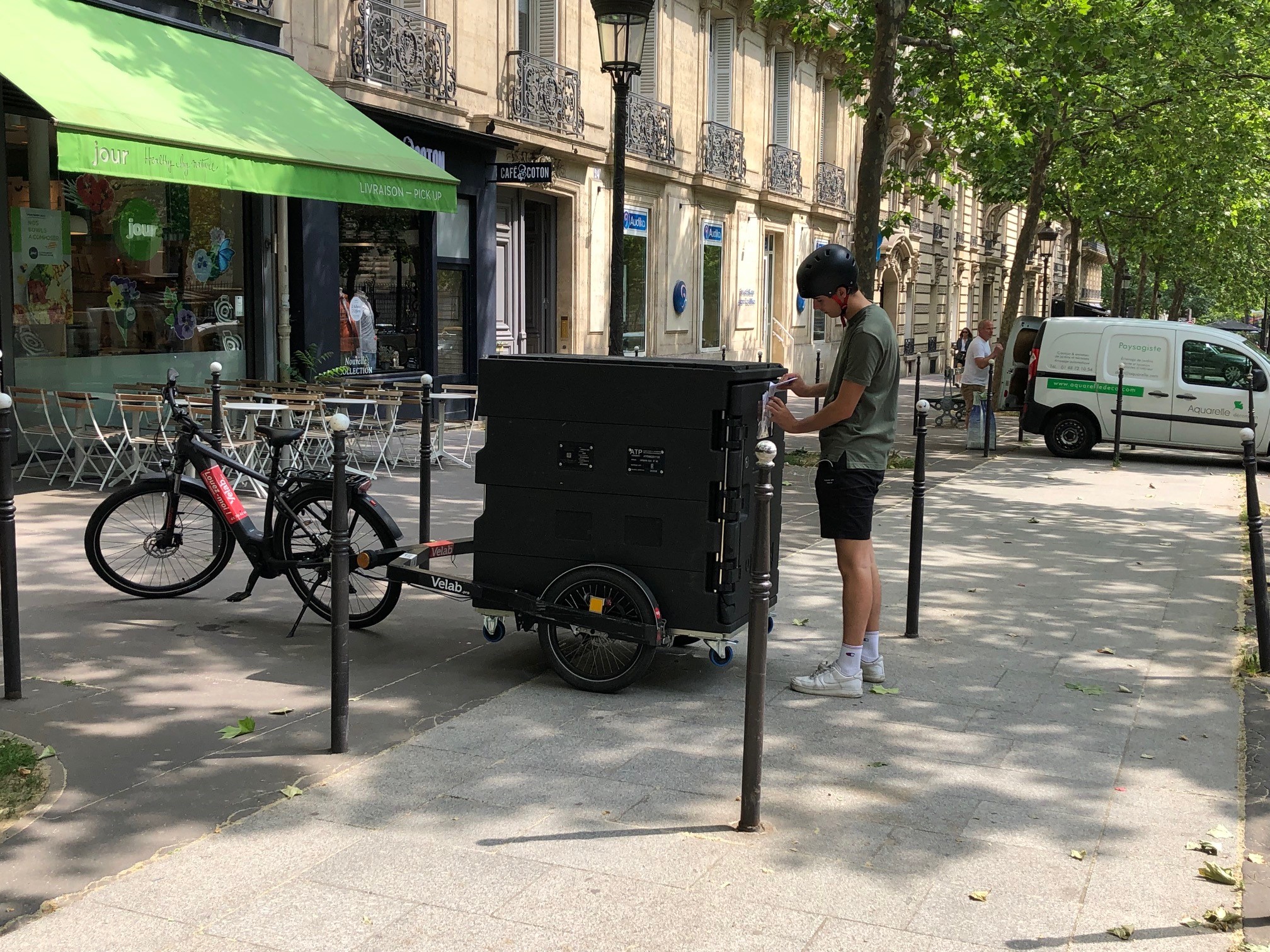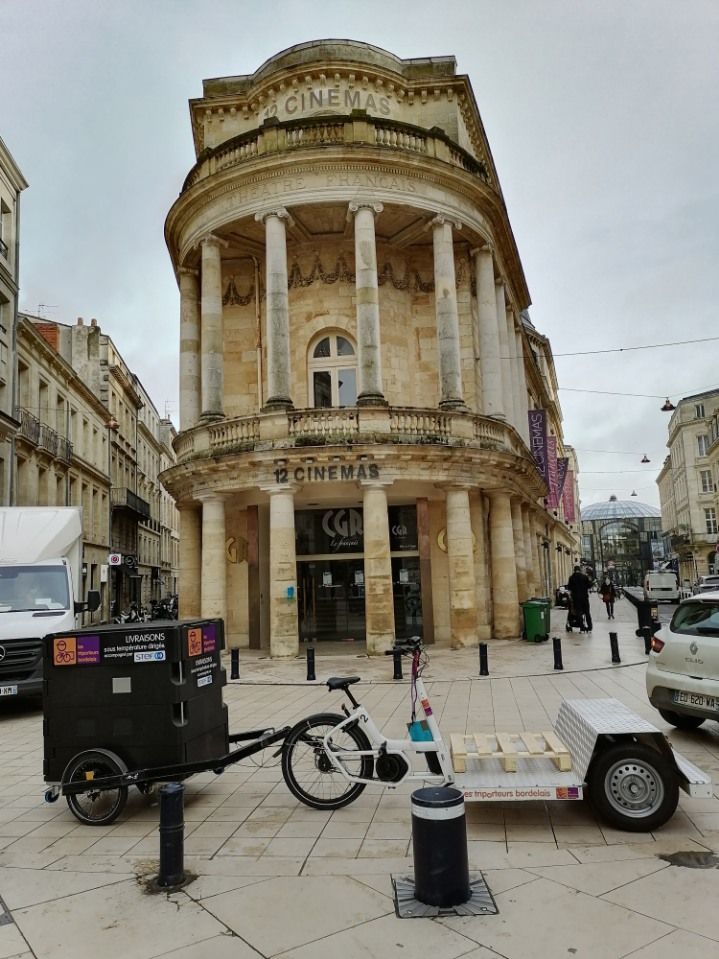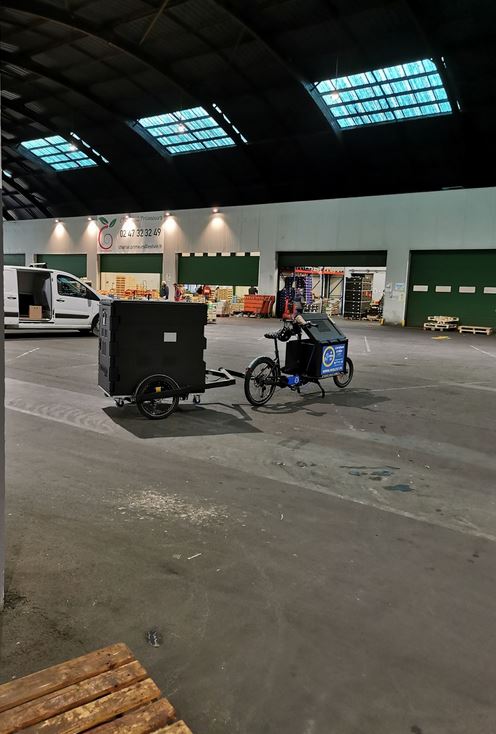What are the standards, requirements, and logistics solutions for frozen product transportation?
16 July 2025 by Edina GÁLFI
13 February 2025 by Edina GÁLFI

The pro cycling logistics Forum, held in Lyon on January 22, 2025, brought together experts, businesses, and public officials to discuss the advancements and challenges in this rapidly growing sector. This event highlighted existing initiatives and potential solutions to effectively and sustainably integrate pro cycling logistics into urban distribution systems.
The growth of cities and the increase in road traffic necessitate the adoption of innovative solutions to ensure the delivery of goods while limiting environmental nuisances. Pro cycling logistics, which relies on the use of cargo bikes and trailers for urban distribution, presents itself as a sustainable alternative to traditional means of transport.
According to the third Professional Cycle Mobility Observatory published on December 10, 2024, by the association Les Boîtes à Vélo – France, France has approximately 3,400 cargo bikes in operation, 84% of which are dedicated to cycle logistics activities. These fleets are mainly concentrated in large urban areas, with Île-de-France leading (1,450 units, 76% of which are in inner Paris), followed by the Auvergne-Rhône-Alpes region (570 units, primarily in the Rhône).
In terms of vehicle types, tricycles or trikes are the most used, representing 47% of fleets, followed by two-wheeled cargo bikes (29%) and trailers (13%). Compact and classic electric bikes make up the remaining 11%.
Pro cycling logistics offers significant advantages both economically and ecologically. According to the Observatory, the cost of pro cycling logistics is up to eight times lower than that of deliveries made by light commercial vehicles (LCVs). Additionally, greenhouse gas emissions are 15 times lower, and the land space used is reduced by 90%.
On average, each cargo bike travels 24 km per day and transports up to 117 kg of goods, figures suited to the needs of last-mile logistics in often congested city centers.


The pro cycling logistics sector in France comprises about 200 companies spread across 74 cities. Among them, 68% operate almost exclusively by bike or cargo bike, while others combine mixed fleets including combustion vehicles. The majority of these companies are very small enterprises (VSEs) (67%) and small and medium-sized enterprises (SMEs) (30%).
In 2022, the sector generated a turnover between 80 and 85 million euros, half of which was achieved by only six companies. Employees in the sector represent between 2,200 and 2,400 full-time equivalents (FTEs), with 400 to 450 FTEs dedicated to support functions.
The company Chronofresh, a subsidiary of Geopost specializing in the delivery of fresh products, has established an Urban Logistics Space (ULS) within the Halles Bocuse in Lyon. This initiative, presented by Paul Wagner (development manager) and Sylvain Reynaud (agency director), is based on an innovative model combining a preparation and dispatch platform in Corbas, and city center delivery by cargo bike.
During the forum, two main models of delivery round organization were identified:


Despite sustained growth, the cycle logistics sector faces several challenges. Annual maintenance costs for cargo bikes range between 2,000 and 6,000 euros due to their intensive use. Additionally, demand can be seasonal, particularly in the trade and services sectors, leading some companies to consider pooling their fleets.
Nevertheless, the prospects remain promising. Nearly 83% of surveyed companies anticipate revenue growth, and 47% plan to recruit. Support from local authorities is also crucial to accompany this transition, particularly in terms of financing, infrastructure, and networking within the ecosystem.
The development of pro cycling logistics requires support from public authorities. During the forum, several institutional representatives shared their initiatives to promote this sustainable delivery mode.
The Métropole de Lyon is working on a logistics plan for goods and services aimed at encouraging urban delivery through eco-friendly means. For its part, LPA Mobilité, manager of public parking lots, is exploring solutions to adapt underground parking to urban logistics.
Older parking lots (with a height limit of 1.90m) pose a challenge, while more recent infrastructures offer possibilities for adaptation. Additionally, the Port Édouard Herriot, with its 30,000m², constitutes an essential logistics hub for the city.
The General Directorate for Infrastructure, Transport, and the Sea (DGITM) plans to create a unit dedicated to cycle logistics in the next mandate. This measure underscores the desire to structure and support the deployment of this model at the national level.
Pro cycling logistics is emerging as a future solution for urban logistics in France. Its economic and environmental benefits, combined with its adaptability to city center constraints, make it a credible alternative to traditional transportation modes. With support from public and private stakeholders, cyclo-logistics is well-positioned to play a key role in transforming urban delivery systems, contributing to more sustainable and livable cities.
